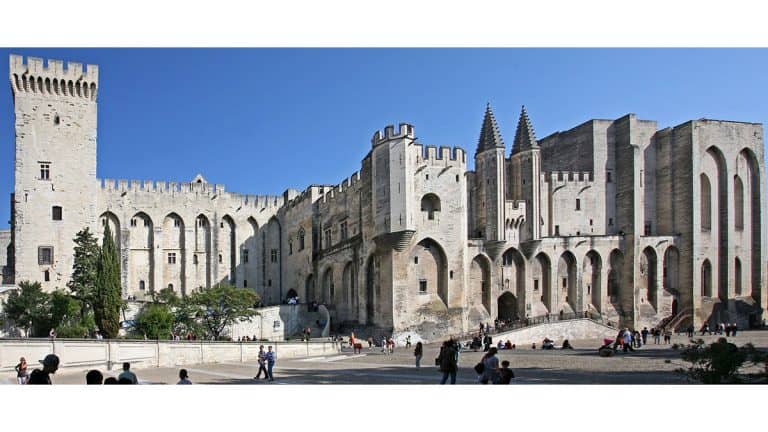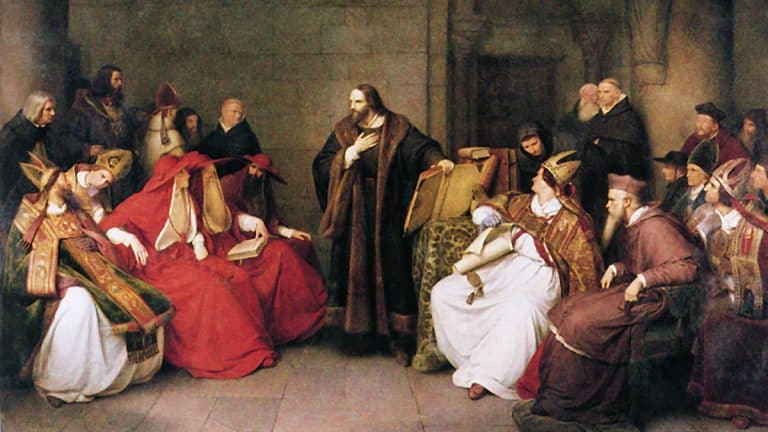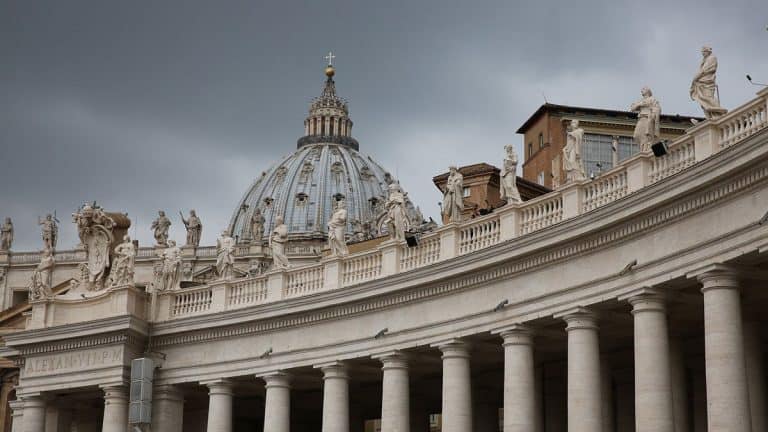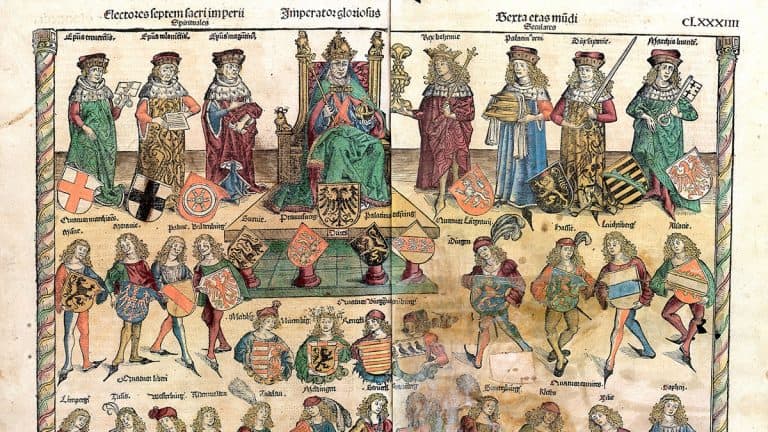Gregory the Great by James Barmby
Today’s free book is a biography of Gregory the Great, who was bishop of Rome from 590 AD until his death. “He is known for instigating the first recorded large-scale mission from Rome, the Gregorian Mission, to convert the then-pagan Anglo-Saxons in England to Christianity.” [Wikipedia]. This public domain title was digitised from the copy held in Spurgeon’s College library.
James Barmby [1822-1897], Gregory the Great. The Fathers of the Church for English Readers. London: SPCK, 1879. Hbk. pp.207. [Click here to visit the download page for this title]
Contents
- Gregory and his Age—Ascendency of the Church—Results of Controversies—Imperial Domination—The Roman See-—Effects of Barbarian Invasions—Justinian—Pope Vigilius—The Three Chapters—Spread of Christianity—Jurisdiction of the Popes-Monasticism—Benedict of Nursia—State of Morals and Religion
- Gregory’s Parentage, Education, Early Life—He becomes a Monk-Ordination and Residence at Constantinople—Return to Monastic Life-Asceticism—Distressed state of Italy—Election to the Popedom—Reluctance to accept—Gregory as Pope—Habits of Life—Istrian Bishops—Deference to the Emperor—African Donatists—Sanction of Persecution—Tolerance towards Jews
- Correction of Monastic Abuses—Separation of Monks and Clergy—Exemption of Monasteries from Episcopal Control—Case of Venantius—Nunneries—Sanctity of Marriage-Endowments—Election of Bishops—Confirmation—Use of the Pall—Respect for Episcopal Rights—Januarius of Cagliari—Natalis of Salona—Correction of Clerks—Sanctuary-Privileges of Clergy—Celibacy—Administration of the Patrimony—Charities
- The Church in Spain—Letters to Leander and Reccared—Appeal of two Spanish Bishops to Rome—Correspondence with Irish Bishops—St. Columban’s Letters—Eastern Illyricum-Hadrianus—Natalis—MaximusRemonstrance with the Emperor-Letter to the Empress—Final settlement—Claim to authority over the Eastern Church—Letter to John the Faster—Lombard Invasion —Gregory’s Sermons—Patriotic activity—Thwarted by the Exarch—Letters to the Emperor and EmpressTruce with the Lombards—John the Faster calls himself Universal Bishop—Gregory’s view of the question—His remonstrances—His sarcastic vein—He addresses the Patriarchs of Antioch and Alexandria—Cyriacus succeeds John the Faster-Gregory’s renewed remonstrance—Correspondence with the Patriarchs—His view of St. Peter’s Primacy being shared by Antioch and Alexandria—Renewed Lombard invasions—Gregory’s activity—Results of his efforts (591-596)
- The Mission to England-Story of the Slaves in the Roman Forum—State of the Church in France—Correspondence with Brunehild—Pall sent to Virgilius—Reforms urged—Candidus sent-Cyriacus—A General Synod desired—Failure to obtain one—Eventual results—Augustine despatched to England—His success—His alleged Miracles—His questions and the replies to them—Scheme for the English Church—Letter to Mellitus—Letters to Bertha and Ethelbert—The British Christians—The Lombards—Theodelinda-Conversion of Agilulph (596-601)
- Accession of Phocas—His Character-His treatment of Mauricius and the Imperial family—Gregory’s letters to him—To Leontia—Consideration of Gregory’s conduct on this occasion—Its result—Former letters in praise of Mauricius— Palliations—Suffering from gout—Last letter to Theodelinda—Death and burial—Conduct of the mob after his death—Archdeacon Peter-Personal appearance of Gregory—His costume—Ecclesiastical Vestments in his day—Relics of him preserved at Rome (601-606)
- Gregory’s writings—His letters—Extracts from them: To the Subdeacon Peter—To Marinianus of Ravenna—To Dominicus of Centumcellae—To Maximus of Salona—To the ex-Prefect Libertinus—To Gregoria, a lady at Court—To the Emperor’s sister, Theoctista—Another letter to the same Iady—Liber Pastoralis Curre—Its renown—Its plan-Summary of its contents—The Book of Dialogues—Occasion of its composition—Its contents—References to Benedict of Nursia-the fourth book about the state of the soul after death-Its effects on Christian thought—Commentary on Job—Milman’s account of it—Specimens of its style—Homilies—On Ezekiel—On the Gospels—Extracts—Sacramentary, Antiphonary Hymns—The Lord’s Prayer in the Eucharistic Office—Genuineness and style of the Hymns—Gregorian and Ambrosian music
- Gregory’s character—His talents—His attainments—His doctrinal views—On the authority of the ChurchAugustinianism—Baptism-The Eucharist—Purgatory—Intercession of Saints—Relics—Pictures and ImagesSlavery—Authority of the Roman See—Results of his policy
Main image: Saint Gregory the Great by José de Ribera. Image source: Wikipedia

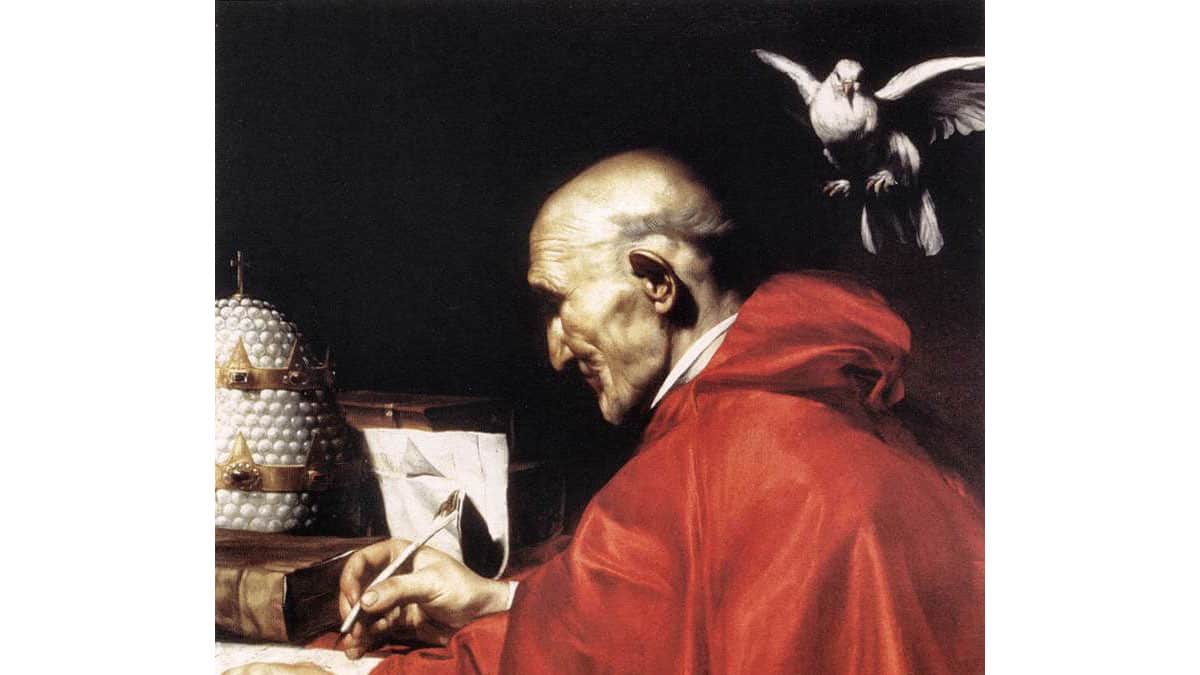
![James Barmby [1822-1897], Gregory the Great. The Fathers of the Church for English Readers](https://medievalchurch.org.uk/blog/wp-content/uploads/2021/10/gregory-the-great_barmby.jpg)
